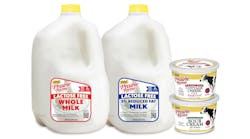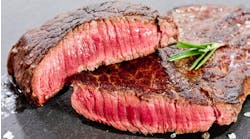Many areas of food production that don’t require food-grade white oils are worth exploring. While in the long run food-grade lubricants are very beneficial, a sound lubrication strategy for plant operations can optimize your financial investment and should include a plan for both food-grade lubricants and alternatives, such as “H2” lubricants, to keep your system running properly and cost-effectively.
H2 lubricants can be used in locations where there is no possibility of the lubricant or lubricated part coming into contact with edible products, like in closed. These examples should help as you examine your plant operations and conduct a lubrication audit to determine where to integrate food-grade lubricants into your system.
MRO Q&A is a monthly problem-solving column for maintenance, repair and operational issues. To pose a question for answering online click here.
